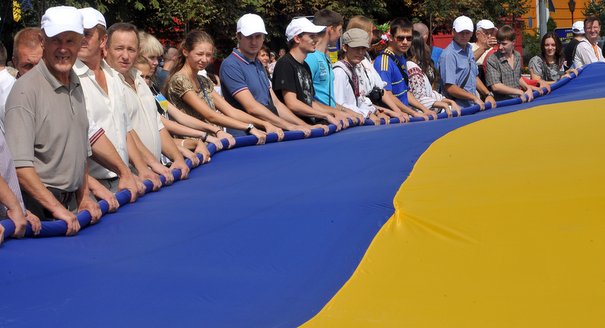More than once, Ukrainians have played a pivotal role in the fate of the Russian empire. The decision of Hetman Bogdan Khmelnitsky, supported by a Ukrainian Cossack Council at Pereyaslav, to seek protection of the fellow Orthodox Russian czar against the oppressive Catholic Polish-Lithuanian state eventually led to Ukraine becoming a “Little Russia” within the growing empire. Although Ukraine did not achieve independence then and soon lost its autonomy, Ukrainians became a great resource and often beneficiaries in the rise of Russian power, its economic and cultural development.
By contrast, Ukrainians’ decision at the 1991 referendum to reclaim national independence nixed Mikhail Gorbachev’s last-ditch attempt to save the disintegrating union of Soviet republics. The Ukrainian leadership’s pro-independence stance amplified the efforts of Boris Yeltsin and others in Russia to replace the ossified Soviet regime and establish themselves at the Kremlin. Kiev’s subsequent agreement to give up the Soviet nuclear weapons in its territory in exchange for Moscow’s recognition of Ukrainian sovereignty within that territory, including Crimea, allowed a peaceful dissolution of a nuclear superpower.
Two decades later, Ukraine is facing a new choice: join with Russia, Belarus, and Kazakhstan to form a Eurasian economic union, or associate itself more closely with the European Union. The Eurasian option carries strong emotional overtones of rich shared legacy and promises immediate economic benefits, such as easier access to the market of some 170 million people, and lower gas prices. The European option does not offer an EU membership prospect, but an association and “deep free trade” with the world’s biggest and richest economic entity. It is also emotionally charged, linked to expectations of a “European future” for Ukraine.
So far, the Ukrainian people have been divided on the issue, which illustrates the complexity of the emerging Ukrainian nation. The Ukrainian government, for its part, has been pursuing a policy of winning as many concessions as possible from its EU and Russian partners, and playing them off against each other, while doing as little as possible to lead Ukraine in either direction. The double fear of the Ukrainian elite is easy to see. It abhors assimilation with Russia, and consequent loss of its own power. It equally dreads real Europeanization of Ukraine, which will again take away its power and give it to the Ukrainian people instead. Staying put in order to preserve its power and its riches, while making countervailing gestures east and west, has been the elite’s standard policy approach.
It would be wrong to describe the “battle for Ukraine” as one waged between Brussels and Moscow. The Europeans are very much focused on themselves for the time being, and as far as the EU enlargement goes, on the Balkans. To them, Ukraine is still a bridge too far, even though they do not relish the prospect of Kiev succumbing to the Kremlin’s wooing. The Kremlin, of course, is pushing for Kiev’s accession to the Customs Union, and geopolitics is as important a factor here as economics. Yet, Russia will not subsidize Ukraine much beyond giving it a discount on gas prices and re-integrating the Ukrainian arms industry with its Russian counterparts.
The choice, and then the battle, is essentially for the Ukrainians themselves to take. What looks like geopolitics and international relations is actually very much about Ukraine’s domestic politics, its political economy and the unfinished process of nation-building. There is again a need for the Ukrainian people to speak out and decide the future of their country. The 2015 presidential election appears as the next best opportunity for that.
